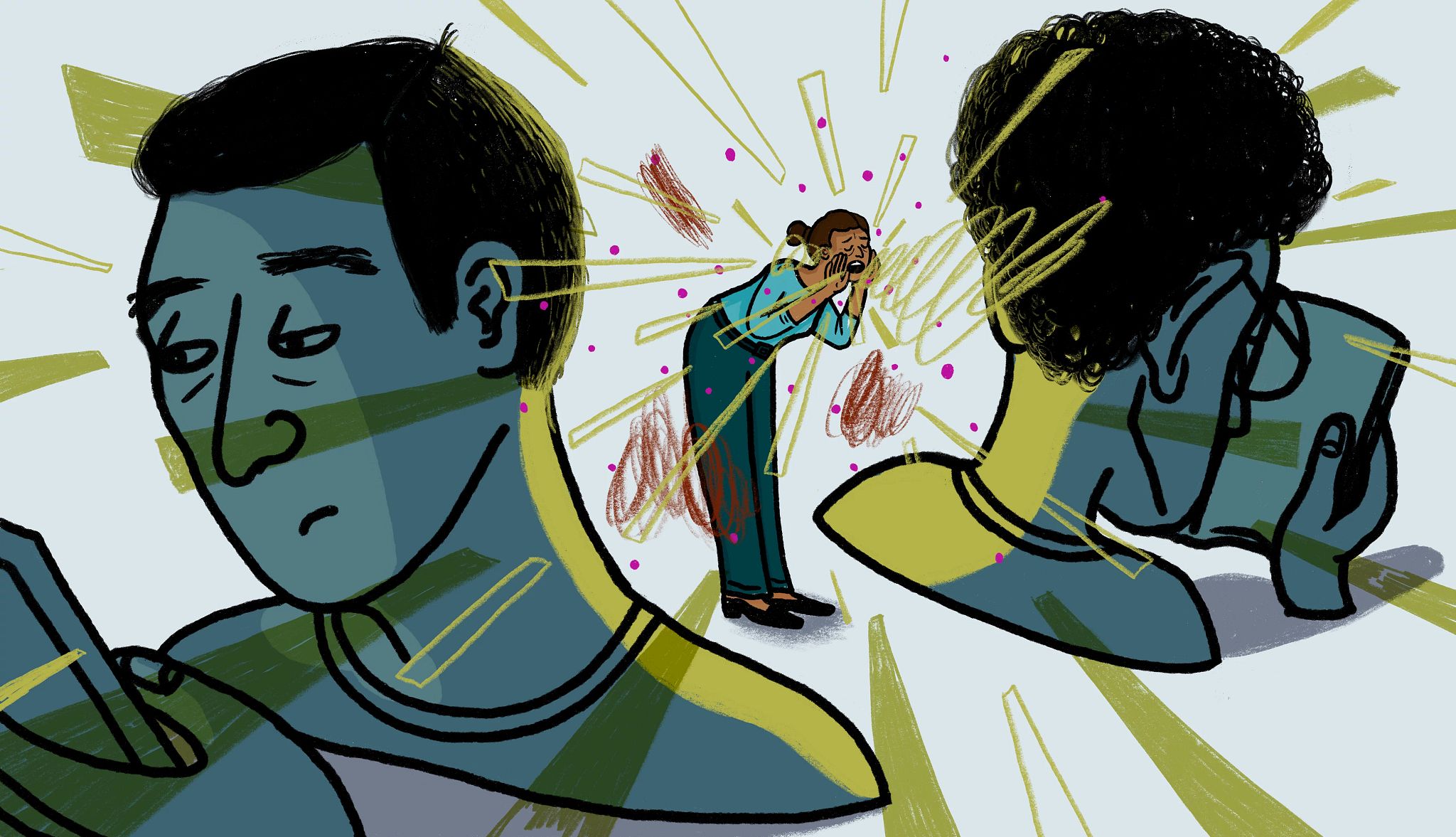AARP Hearing Center


Editors asked AARP Family Caregivers Discussion Group members and other caregivers to submit pressing questions they’d like family therapist and clinical psychologist Barry Jacobs to tackle in his caregiving column. Jacobs took on this hot-button topic.
Q: I talk with a therapist every week, and at first, it was to vent my caregiver burnout stress from taking care of my dad. Lately, it has been about my husband and my brother. I am sleep-deprived, stressed, overwhelmed and angry, and I’m starting to despise my husband for various reasons (he’s unsupportive, unwilling to take over for a bit so I can get some sleep, etc.). My brother is too busy living his own life to care what’s going on here. I’ve talked about this in the group and apparently, I’m not alone. How do we get our family (spouse, siblings, etc.) to listen when we ask for help and actually show up?
(Letter edited for length and clarity.)
Jacobs: Too many caregivers in too many families experience what you’re going through — working to their utmost to do the right thing and feeling very much alone, unaided and, oftentimes, unappreciated. The key word in your question above is “actually.” Brothers make promises that prove empty as other priorities arise. Husbands become sidetracked on their way to showing up. That “actually” is not just about listening to you; it’s also about being accountable for following through on caregiving commitments.
Join Our Fight for Caregivers
Here’s what you can do to support family caregivers:
- Sign up to become part of AARP’s online advocacy network and urge lawmakers to pass legislation to save caregivers time and money.
- Find out more about how we’re fighting for you every day in Congress and across the country.
- AARP is your fierce defender on the issues that matter to people age 50-plus. Become a member or renew your membership today.
It describes what you accomplish every day, despite your struggles with caregiver stress and burnout; otherwise, your dad would have no one who is actually there for him. How can you get your brother and husband to do the same?
The answer is complicated. You are understandably angry and probably want to vent your fury to shame them into doing more. But the sad truth is, while your anger may force them to comply in the short term, it will likely undermine their long-term cooperation. They’ll follow through on a few promises to shut you up and calm you down but will backslide quickly to old, neglectful patterns, leaving you feeling abandoned all over again. I’m a big believer in the old saying, “You catch more bees with honey than vinegar.” I don’t recommend berating them, no matter how justified you are and how gratifying it would feel.
Two theories of caregiving decision-making
To get your brother and husband to step up, it’s worth reflecting on what’s driving their decisions about how much they do or don’t participate in caregiving. There are two ways of generally looking at this process.
One perspective is that family members who care about a care receiver and a primary caregiver will rise to the occasion when called upon to do what needs to be done for as long as care is necessary. You can count on them. Those who seemingly don’t care will disappear in the clutch. You might as well write them off.





































































More From AARP
Book Excerpt: ‘The AARP Caregiver Answer Book’
Drs. Jacobs and Mayer address the issues caregivers face
Are You a ‘Control Freak’ Caregiver?
Learn how to strike a balance between being responsible vs. demandingCaregiving Through Communication Breakdowns
Discover ways to cope and connect when communication breaks down